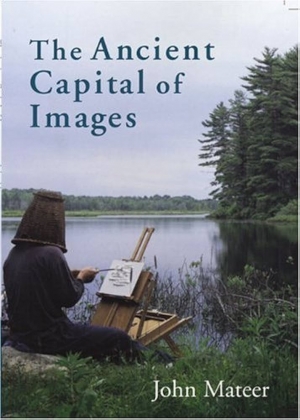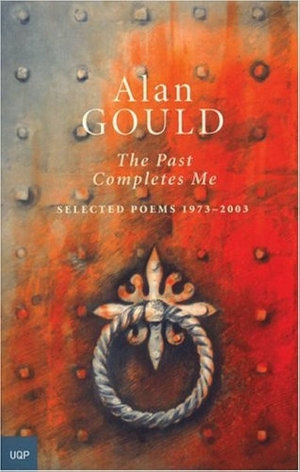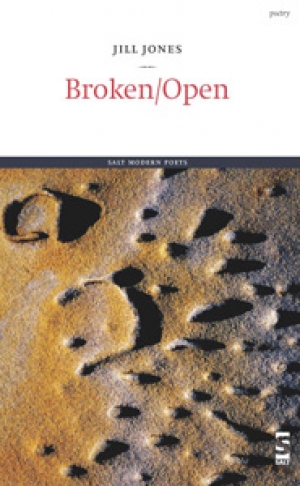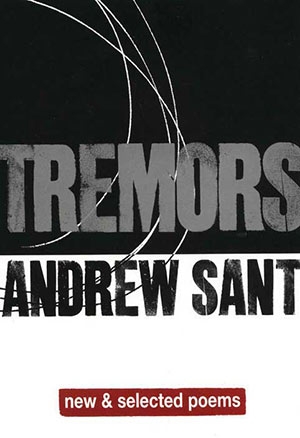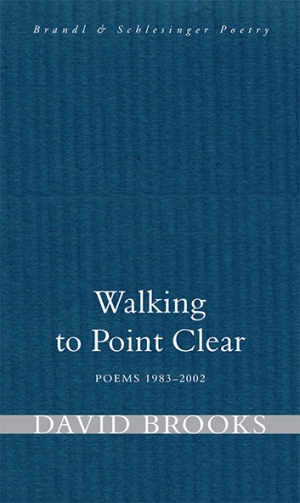Poetry
Michael Sariban reviews ‘The Yellow Dress’ by Yve Louis and ‘The Ancient Capital of Images’ by John Mateer
John Mateer’s fifth poetry collection confirms him as a poet of considerable assurance and originality. The Ancient Capital of Images is, in a sense, a metaphor for the poetic imagination – the entity formerly known as the Muse. The terrain ranges from South Africa to Australia to Japan. It is in the latter section that his achievement is most impressive. There is little here of the travelogue, the sense being rather of an inward journey.
... (read more)David McCooey reviews 'The Best Australian Poetry 2005' edited by Peter Porter
Comedy isn’t the only art that requires good timing. Poetry also requires it. Indeed, poetry might be partly defined as the art of giving things away at the right moment. Illustrating this we have The Best Australian Poetry 2005. In this elegant anthology, we find Peter Goldsworthy’s inspired description of our planet: ‘Our earthen dish is seven parts water / one part china, and a tiny bit japanned.’ We also find Brett Dionysius on the 175-year-old tortoise Harriet, which, having outlived Charles Darwin, thinks: ‘Now I’m with Steve Irwin at Australia Zoo. / I Harriet, time-lord tortoise: outlive him too.’ We find Jennifer Harrison’s arresting description of ‘grammar’s lovely utterly cold snow’. We find Keith Harrison’s ‘kind of stretched villanelle’ (as he describes it), which begins: ‘The summer night is dangerous and deep.’ We find the unsettling climax of Aileen Kelly’s ‘His Visitors’, in which ‘fetid ivies’ ‘reach up and suck out the light’. We find Anthony Lawrence’s poem about the Wandering Albatross, with its reference to ‘the compass glass of its eye’. And we find the terrible, uncomic climax of Judith Beveridge’s powerful poem ‘The Shark’.
... (read more)David Gilbey reviews 'The Paradoxes of Water: Selected and new poems 1970–2005' by Rod Moran
One of the things Rod Moran is good at is an oxymoronic tenacity – a kind of deliberate insouciance, a restrained violence – due to his embrace of metaphor. His best poems articulate disturbing comparisons and create surreal hybrids. You can see this in some of the early poems from High Rise Sniper (1970–80) selected for this new collection, such as ‘Chemical Worker’: ‘this pure acid, like some cruel psalm, / gives us daily bread ... [the living] / have a place in the maggot’s equation.’ Or, from ‘Cross Country’: ‘half a galah flock/ is spattered in its own pink / feathers and gore in mad array, / swimming down the highway / like grotesque fish / in the heat’s bright lagoon.’ The poems have an intensity that demands considerable attention and makes every line count.
... (read more)Martin Duwell reviews 'The Past Completes Me: Selected poems 1973–2003 ' by Alan Gould
Alan Gould’s writing career began in the early 1970s when he was one of the ‘Canberra Poets’. This substantial selection covers thirty years and clearly shows both the achievements and the limitations of his work: I think the former outweigh the latter. One of the strengths of his poetry is a consistent vision; thirty years gives the opportunity for that to be explored in all its ramifications. The centre of this vision is history or, in its unintellectualised form, the past. Almost all the poems relate to this in one way or another. Even the later poems of humour or love or the waiting for a child’s birth are framed by the overriding meditation on the past, so that, though they are expressions of an intimate personal life, it is one conducted on the surface of the immense, slowly changing patterns of history.
... (read more)for Craig Sherborne
‘Grief wrongs us so.’
Douglas Dunn
To the sea we bear our fathers in state –
or what they’ve done to them: the square conversions.
Surf mild as receding tides,
we slump in dunes with our burdens,
... (read more)This must be a page from The Manual
For the Instructing of Humanity,
Showing the improvement of the Social Order
By the avoidance of personal identification
With Suffering, a turning-away to private Sanity.
... (read more)'Parrotology: On the necessity of parrots in poetry' by John Kinsella
A couple of months ago, driving with my daughter just outside the wheat-belt town of York, Western Australia, we came across a ‘28’ parrot that had just been struck by a car. I scooped it up in a cloth, and my daughter held it on the back seat until we could get home. Having been bitten numerous times by those ‘strong and hooked’ beaks, I warned her to be wary. But the parrot – a splay of emerald, turquoise, black and yellow feathers – was too dazed to bite, and clearly had a broken wing. Though we’ve always called these beautiful birds 28s, technically they are a ring-necked parrot, and possibly even the Port Lincoln variety of ring-necked. The demarcation lines between varieties are hazy. The local ‘nickname’ matters as local names do. We eventually handed the injured bird over to the local ‘bird lady’, who later let me know that it had died due to massive brain damage. My daughter doesn’t know it died. She said it was the closest she’d ever come to something so ‘amazing’. I left it at that.
... (read more)Broken/Open, Jill Jones’s fifth book of poems, explores the meanings of breaking and opening partly through an exploration of memories where the past is more accessible than the unexpected shocks of the present. Jones’s previous book, Screens Jets Heaven: New and Selected Poems (winner of the 2003 Kenneth Slessor Poetry Prize), contained many poems that hinted at abstraction. Broken/Open, divided into eight sections, furthers that abstraction. Journeying through sites of childhood and memory, the book’s forays into the past open out the present, particularly in the last epiphanic section. Unlike in some earlier work, where social and political comment were overt, opinions are often relegated to phrases to make context for the main drama, although one poem mirrors the plight of asylum seekers with its rudimentary finish: ‘Because I don’t belong here – being from the State of Flux – my / papers do not rhyme … // Because I don’t belong here, I know it is better and I know it is / worse’ (‘Refrains on Sand’).
... (read more)Paul Hetherington reviews ‘Tremors: New and selected poems’ by Andrew Sant
In ‘Glenlyon’, the opening poem of his most recent collection, Tremors: New and Selected Poems, Andrew Sant provides readers with clues about his approach to poetry. ‘Glenlyon’ speaks of the ‘cool light’ of the page and ‘my shadow’s / hovering vague shape’. Certainly, Sant’s presence is invested in much of his work and his poetry prizes coolness and clarity. While he is sometimes a passionate poet, this passion is rarely overt and it is balanced by a determination to make good argument out of his poetic material and by a characteristically reasonable tone.
... (read more)David Gilbey reviews ‘Walking To Point Clear: Poems 1983–2002’ by David Brooks
At first, many of these forty-eight poems from two decades struck me as almost self-indulgent and mundane: short lyrics about family life, eating, drinking, dreaming of Valparaiso, lemons, the Molonglo River; though there was often an underside of premonition, discontent, and a stillness that made me think I hadn’t really understood. In the first group, ‘One Hundred Nights’ bothered me: ‘When will it end / this waking / while others sleep, / this herding out on the ghost fields? / the flesh / whispering / its impossible desires / the bones / murmuring their Kali mantra / love, emptiness / love, emptiness.’ However, on my next reading, some of the second group struck me with autumnal clarity. From ‘Brown Pigeon’: ‘eyes / plucked out, feathers / scattered, / maggots / when I turn it over / writhing in the black mess near the heart’, where the image of the dead bird is an iconic memento mori.
... (read more)
